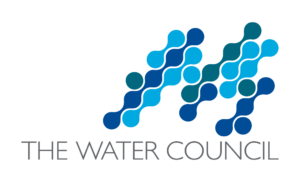
As Wisconsin is bordered by the two largest lakes in the United States to the north and east, the Mississippi River to the west and more than 15,000 lakes in-between, it is no surprise that the state knows its water. In fact, according to the Wisconsin Economic Development Corporation (WEDC), Wisconsin has established itself as a leader in effectively managing and protecting its water and is home to more than 300 water technology companies, with more than half in Milwaukee alone.
Milwaukee is the global hub for the growing water technology industry. The city has the world’s first water stewardship district and is the stomping ground for The Water Council. Its mission is to advance the water industry with partnerships and innovation from around the Milwaukee area and around the world.
In 2013, The Water Council introduced BREW (Business. Research. Entrepreneurship. Water) as a freshwater seed accelerator. In early 2021, it evolved into BREW 2.0, a water technology next-gen accelerator program to support water tech innovators from around the globe. Since BREW’s founding in 2013, it has helped program graduates raise $36 million in capital, $16 million in additional funding and $15 million in revenue, according to the WEDC.
As an example, Rapid Radicals Technology from Milwaukee created a system that treats wastewater from storm events before releasing it back into the Great Lakes. It raised $50,000 from BREW and today is working with water treatment centers around Wisconsin and in Chicago.
Another BREW alum is Cadens, LLC, a Sullivan-based startup. It is pioneering micro and small hydropower technologies and works with river communities and private dam owners to promote sustainability with its hydropower systems. Cadens participated in BREW’s 2014 program, and in 2015, it received two $10,000 grants from WERCBench Labs. In recent years, it has become a prime water tech startup success story.
Wisconsin also has water tech startups outside of BREW. Neptune Benson of Beaver Dam uses ultraviolet and filtering to disinfect water and encourage reuse. In 2016, it was acquired by Madison-based Evoqua Water Technologies, the global leader in helping municipalities and industrial customers protect and improve water.
The University of Wisconsin system also has implemented several opportunities for students around the state to get more involved in the water industry. UW-Milwaukee’s School of Freshwater Sciences is the nation’s only graduate school dedicated to the study of freshwater. Meanwhile, UW-Superior allows students to participate in the Great Waters Research Collaborative to learn more about sustainable industrial, commercial and public use of the Great Lakes.
In addition, UW-Madison offers Freshwater and Marine Sciences and Water Resource Management majors, and UW-La Crosse offers River Studies.

